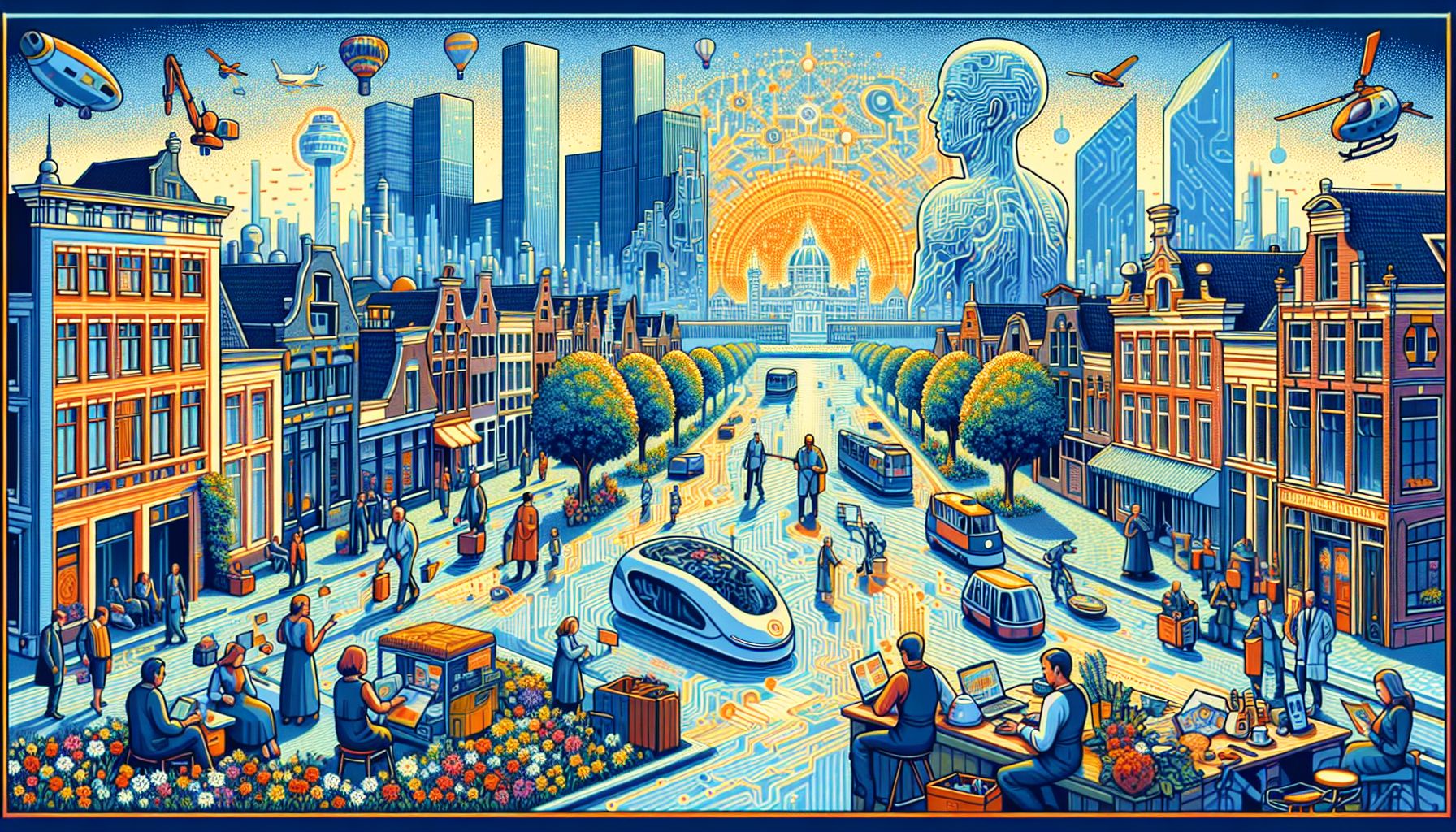Dutch AI Revolution: Transforming Business Across Industries

Amsterdam, Wednesday, 13 November 2024.
AI is reshaping the Netherlands’ business landscape, driving innovation in healthcare, finance, and beyond. This technological wave promises enhanced efficiency and groundbreaking solutions, positioning Dutch industries at the forefront of AI-driven transformation.
AI in Healthcare: A New Era of Efficiency
One of the most transformative impacts of AI in the Netherlands is evident in the healthcare sector. AI-driven technologies are enhancing diagnostic accuracy and streamlining patient care processes. For instance, AI systems are now capable of analyzing medical images with precision, assisting radiologists in detecting anomalies that might be missed by the human eye. These innovations reduce diagnostic errors and expedite the treatment process, ultimately leading to improved patient outcomes. Dutch hospitals and research institutions are actively collaborating with AI firms to integrate these technologies into everyday practice, ensuring a more efficient healthcare system.
Revolutionizing the Financial Sector
AI is also making significant inroads into the financial sector. Dutch banks and financial institutions are leveraging AI to optimize operations, from fraud detection to customer service enhancement. AI algorithms can analyze vast amounts of transaction data in real-time, identifying fraudulent activities with greater accuracy and speed than traditional methods. Additionally, AI-powered chatbots and virtual assistants are improving customer interactions, providing real-time support and personalized financial advice. This not only enhances customer satisfaction but also reduces operational costs for financial institutions.
VBK’s AI-Driven Translation Initiative
In the publishing industry, Veen Bosch & Keuning (VBK), based in the Netherlands, is pioneering the use of AI for translating books into English. This initiative aims to increase the accessibility of Dutch literature to a global audience. The project is currently in its experimental phase, involving the translation of less than ten commercial fiction titles. While this approach has sparked debate about the quality and creativity of AI translations, it represents a significant step toward integrating AI in publishing. The use of AI for translation could potentially streamline the process and reduce costs, though human oversight remains crucial to ensure accuracy and cultural nuances are preserved[1].
Perciv AI and Autonomous Driving
Perciv AI, a spin-off from TU Delft’s Intelligent Vehicles group, is at the forefront of AI applications in autonomous driving. The company develops AI-based software solutions that enhance radar sensor capabilities, offering a cost-effective alternative to expensive LiDAR technology. This innovation is particularly significant in adverse weather conditions, where traditional sensors may fail. By integrating AI-driven radar technology, Perciv AI aims to make autonomous driving more accessible and safer, contributing to the development of smart cities and sustainable transportation solutions. Celebrating their second anniversary at YES!Delft, Perciv AI continues to expand its influence in the field of autonomous systems[2].
Conclusion: Embracing the AI Future
As AI continues to permeate various sectors in the Netherlands, it brings with it the promise of efficiency and innovation. From healthcare to finance and publishing to autonomous driving, AI is transforming how businesses operate and compete on a global scale. However, this transformation also raises important questions about ethics, quality, and the role of human oversight. As Dutch industries navigate these challenges, the focus remains on harnessing AI’s potential while ensuring responsible and inclusive technological advancement.

